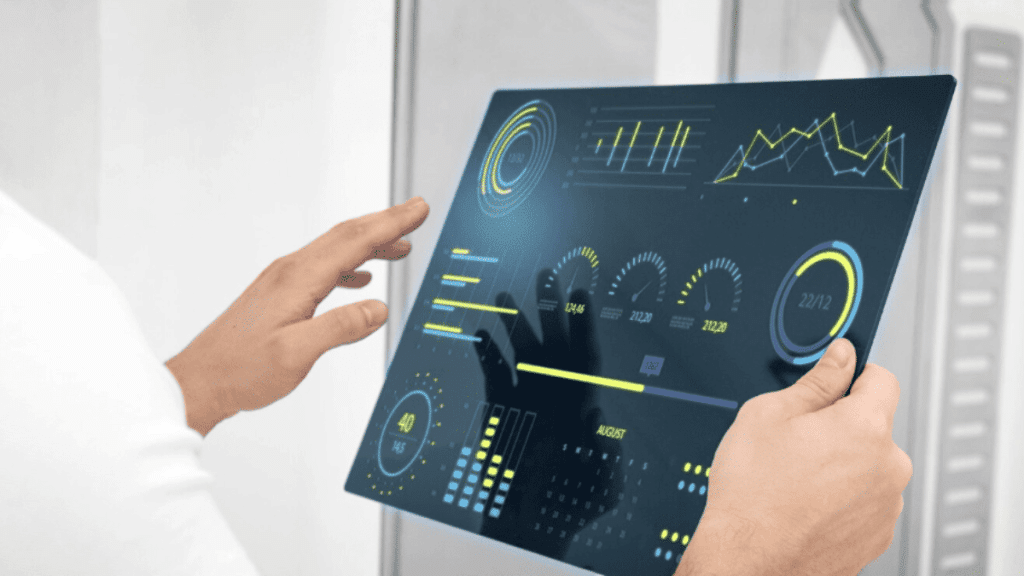In today’s fast-paced business world, success often hinges on the ability to make quick, informed decisions. However, sifting through mountains of data manually is both time-consuming and prone to error. This is where artificial intelligence (AI) steps in. With the rise of automated reporting tools powered by AI, businesses can now streamline data analysis, generate real-time insights, and make smarter decisions faster than ever before. Here’s how adopting these innovative solutions can give your business a serious competitive edge.
Simplifying Data Analysis with AI
One of the greatest challenges facing businesses today is managing the sheer volume of data generated from daily operations. From customer transactions and marketing analytics to supply chain data, the task of gathering and analysing this information can easily overwhelm traditional manual methods.
AI-driven reporting tools simplify this process by automating data collection, cleaning, and analysis. Instead of spending hours poring over spreadsheets, businesses can rely on AI to quickly identify trends, detect anomalies, and summarise key metrics. This not only saves valuable time but also ensures a higher level of accuracy.
Moreover, many AI platforms offer predictive analytics, helping businesses to anticipate future trends based on historical data. For instance, a retail company could use AI to predict seasonal sales patterns, enabling them to adjust inventory and marketing strategies proactively. This level of foresight would be almost impossible to achieve consistently without the assistance of AI.
By removing the heavy lifting from data analysis, automated reporting tools allow decision-makers to focus on interpreting insights and planning actionable strategies — rather than getting bogged down in the mechanics of data processing.
Streamlining Reporting and Decision-Making
Reporting has traditionally been a laborious process, often involving multiple departments, manual data compilation, and extensive back-and-forth to verify numbers. AI transforms this workflow by generating comprehensive reports at the click of a button.
Modern automated reporting tools can pull data from multiple sources — such as CRM systems, financial software, marketing platforms, and website analytics — and integrate it into a single, easy-to-read report. These reports can be customised to suit the needs of different stakeholders, whether it’s a high-level executive summary or a detailed performance breakdown for department heads.
Visualisation is another area where AI tools shine. With dynamic dashboards, charts, and graphs created automatically, it becomes far easier to spot patterns and outliers. These visual aids enhance the clarity of reporting, making it simpler for teams to grasp key insights quickly and align their strategies accordingly.
Additionally, real-time reporting means businesses no longer need to wait for monthly or quarterly updates to react to changing circumstances. AI-powered tools can provide up-to-the-minute insights, empowering leaders to make informed decisions swiftly and confidently.
For example, if a marketing campaign is underperforming, AI tools can immediately flag the issue, allowing the team to pivot strategies without losing valuable time or budget. In today’s competitive landscape, this agility can be the difference between capitalising on an opportunity and falling behind.
Gaining a Competitive Edge with AI-Enhanced Insights
Beyond efficiency and speed, automated reporting tools give businesses a strategic advantage by fostering smarter decision-making. The ability to make data-driven decisions quickly enables companies to adapt faster to market shifts, customer preferences, and emerging opportunities.
AI tools can uncover hidden patterns and relationships within data that might be missed by human analysis alone. These insights can reveal new customer segments, product opportunities, or operational efficiencies. In turn, businesses can craft more targeted marketing campaigns, optimise resource allocation, and fine-tune their offerings to better meet customer demands.
Moreover, democratising access to data across an organisation ensures that decision-making is not limited to the boardroom. When teams at all levels have access to accurate, up-to-date information, they are empowered to make better decisions within their roles. This fosters a culture of agility, innovation, and accountability.
Incorporating AI into your business’s reporting processes is not just about keeping pace with technological trends — it is about staying ahead. Companies that leverage AI-driven insights are better positioned to anticipate change, outmanoeuvre competitors, and deliver superior value to their customers.
As the business world continues to evolve, embracing AI-powered automated reporting tools is no longer optional. It is an essential strategy for any organisation looking to thrive in the digital age.
Conclusion
Incorporating AI into your business’s data analysis and reporting processes can transform how you operate. By simplifying complex data tasks, streamlining reporting, and enabling faster, smarter decisions, AI empowers businesses to act with greater speed and precision. The insights provided by automated reporting tools help companies stay agile, adapt to market demands, and maintain a crucial competitive edge.
As AI technology continues to evolve, now is the perfect time for businesses of all sizes to explore how these intelligent solutions can enhance their decision-making capabilities and drive long-term success.
